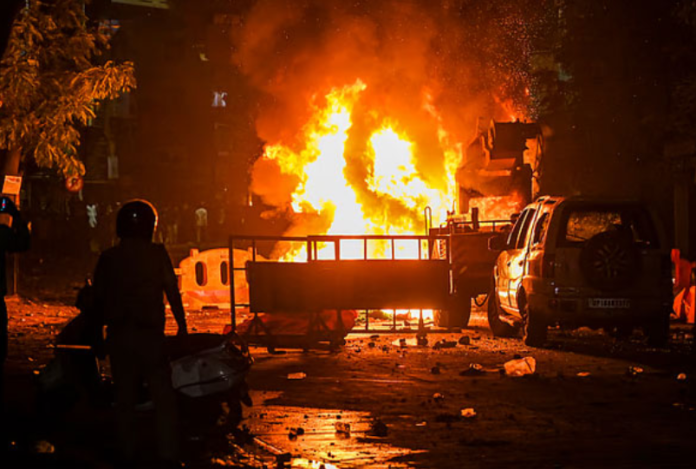Bengaluru: Once regarded as a “garden of peace” for all communities, Karnataka is now facing a troubling rise in crimes driven by religious tensions. Data from the State Crime Records Bureau (SCRB) reveals a 64.87% increase in such incidents, growing from 208 in 2021 to 345 in 2024.
By May 2024 alone, 123 religion-linked cases had already been registered. Particularly alarming is the 133.31% jump in communal or religious riots, rising from 9 incidents in 2021 to 21 this year. Experts attribute this surge to a combination of divisive political rhetoric, social media misinformation, and deep-rooted caste and religious divides in several districts.
Despite government efforts – such as the establishment of an Anti-Communal Task Force – the results have been largely ineffective. Religion-related crimes are still being filed under various classifications, including caste-based, communal, regional, and linguistic offences.
As per The New Indian Express, a senior police commissioner said that social media is playing a central role in fanning unrest. “We often take quick action against individuals who post inflammatory content, but political leaders involved in such cases rarely face swift consequences. Political protection for communal offenders is not new in Karnataka, no matter which party is in power,” the officer said.
He further criticised the lack of preventive policing, citing weak local intelligence networks and insufficient enforcement measures such as the Goonda Act. “We need stronger surveillance and earlier interventions,” he added.
With local body elections approaching, tensions are expected to rise further. An IPS officer currently serving as a district superintendent noted that intolerance has become deeply rooted. “Even minor provocations during religious events now escalate rapidly. The lack of stringent punishment is emboldening repeat offenders,” he warned.
Another senior police official pointed out that the reach of religious conflict has expanded dramatically due to viral social media content. “Earlier, these issues were confined to specific areas. Now, a single post can trigger unrest across the state. While monitoring has improved, stronger preventive actions are still lacking.”
Despite several high-level announcements, anti-communal measures remain largely reactive. Both experts and law enforcement agree: without genuine political resolve and robust policing, communal crimes in Karnataka are unlikely to decline.




